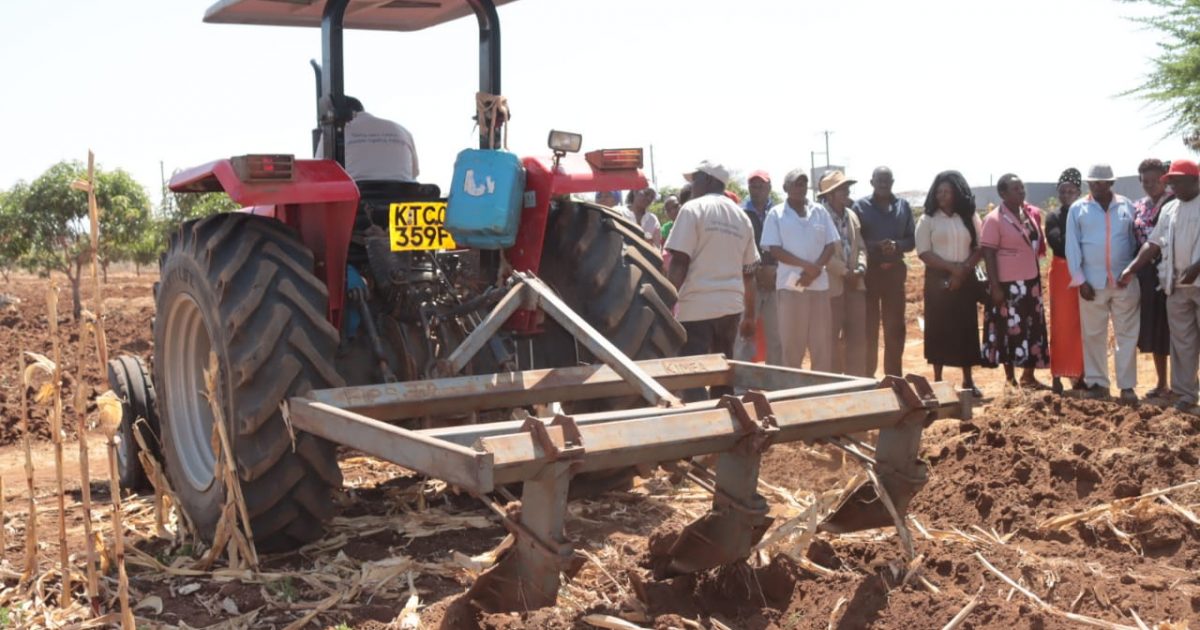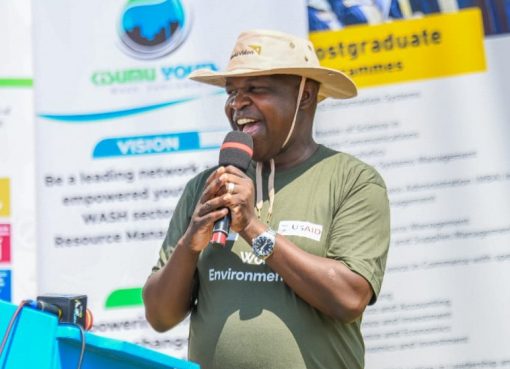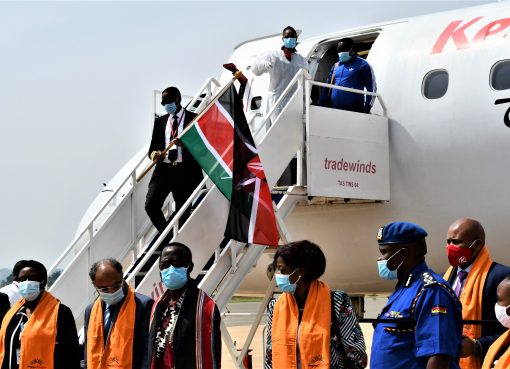The United States International Agency (USAID) funded Feed the Future Kenya Crops Market Systems (KCDMS) has launched a deep tillage and rapid soil testing campaign to promote informed and science-based agricultural practices among farmers, boosting food security in the lower southeastern region.
Brenda Aluda, KCDMS Senior Technical Adviser, said the deep tillage campaign will increase awareness of technology using tractor-drawn chisel ploughs, allowing deep penetration farrows into the soil during ploughing to retain more water for crop use during the dry weather.
She said the technology ensures that the available water is retained in the soil for a longer period of time compared to the normal tillage method, where farmers use disc ploughs, and also reduces soil erosion.
“The reason why we are focusing today on soil and water conservation measures is that the region has experienced drought due to climate change in the past two seasons, and with insufficient water, farmers have been reaping little farm produce,” said Aluda while launching a deep tillage campaign at Kwa Kathoka in Makueni County on Monday.
“This month we are targeting to sensitise 6,000 farmers in Makueni, Kitui, and Taita Taveta counties and to adopt more than 4,000 acres of land under a deep tillage offer where the farmer ploughs an acre and the project ploughs an extra acre for free for each in partnership with county governments,” added Aluda.
She disclosed that their organisation has assisted farmers in Makueni to cultivate 2,300 acres under a deep tillage programme during the March, April, and May long rains.
“We are also working with community seed multipliers to ensure that we are multiplying drought-tolerant crops so that farmers can get good-quality seed for planting during the expected October, November, and December rainy seasons,” she added.
The drought-resistant crops include green grammes, cowpeas, and pigeon peas.
“For this region, we are expecting to get 24,000 metric tonnes from the 4,000 promotional acres, where each farmer is expected to harvest 4-6 bags per acre of green grammes and cow peas, respectively,” said Aluda.
In this regard, she encouraged farmers to plant certified seed that is procured from agro-vets to increase their harvest yields through the incorporation of good agricultural practices and soil conservation measures.
However, Aluda noted that some farmers were reusing uncertified seed, which contributed to poor crop production per acre.
“One of the challenges we are facing is that the farmers are reusing most of the seeds they had previously used, thereby exhausting the genetic potential of these seeds for better yields. Also, infestations of aphids reduced the yields,” added Aluda.
At the same time, the Senior Technical Adviser said KCDMS is currently supporting farmers to access tractor services at a subsidised cost of Shs. 2,500 to plough an acre of land in the three counties.
Further, Aluda said that farmers will benefit from soil clinics, where they are expected to carry soil to their farms to be tested, and each will get immediate personalised soil health and its nutrient levels, PH, and appropriate recommendations and crop choices.
KCDMS has initiated a day campaign across the county, where they expect to sensitise farmers on the need to adopt the new agriculture practices to increase their crop production.
Ann Muema, a farmer at Kwa Kathoka, said deep tillage farming technology has improved her farm yields, which are enough to feed the family.
“I was getting low yields from my one-acre farm previous seasons with oxen, but now with deep tillage technology, I am able to harvest 8 bags of maize, which is enough to feed my family,” said Muema.
Speaking at the same event, the Department of Agriculture Chief Officer, Mr. Daniel Ndolo, said this conservation agriculture will improve crop production in the county while encouraging farmers to adopt the new technology.
The two campaigns will be carried out in Mavindi, Kathangini, Kalawa, Mbumbuni, and Tawa. Other places include Kavumbu, Kitise, Thange, Masongaleni,Kambu, Mtito Andei, and Makindu.
By Patrick Nyakundi and Ronald Rono




